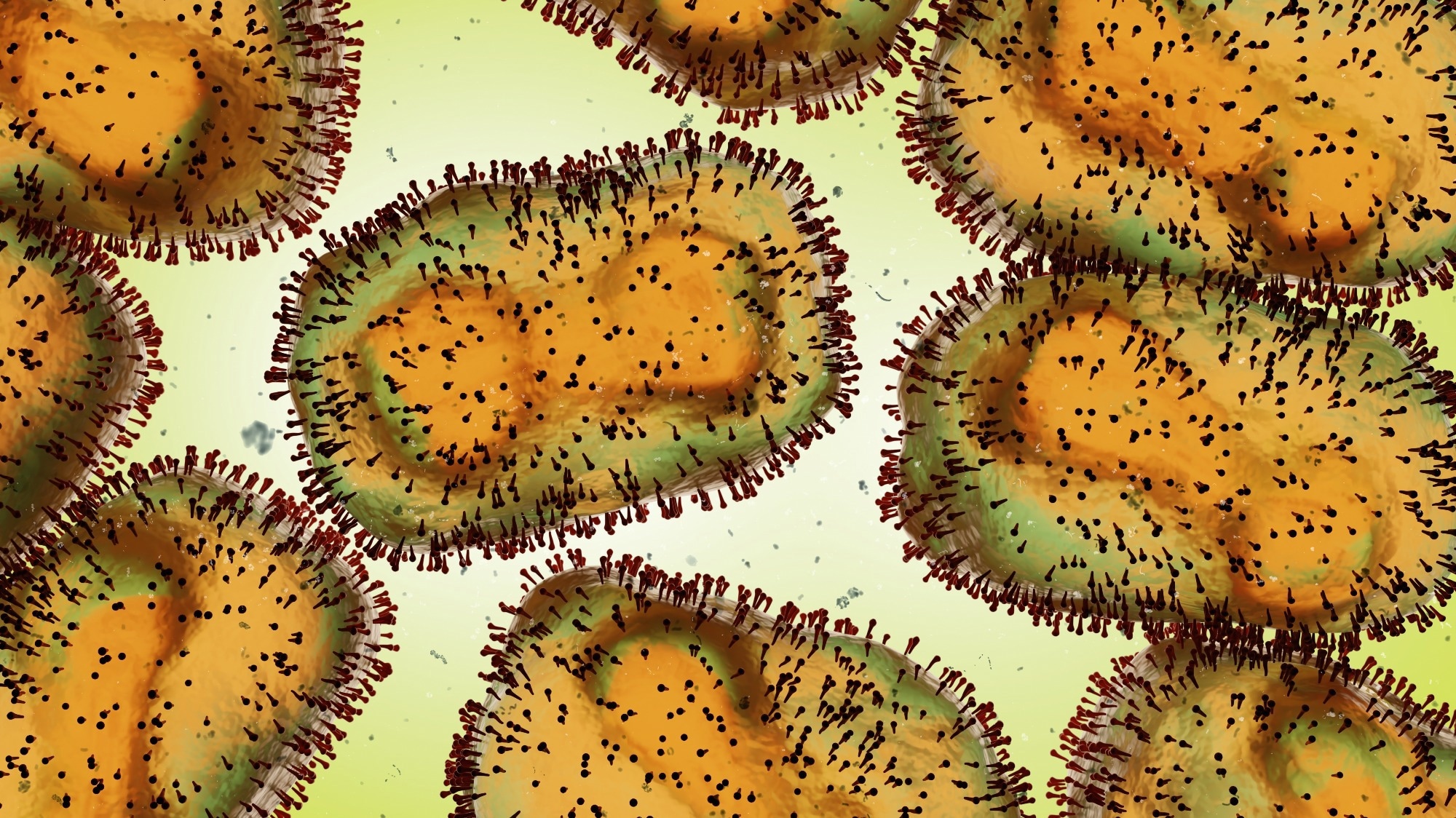In a recent study posted to the medRxiv* preprint server, researchers investigated the incidence of cardiac AESIs (adverse events of special interest) among Kaiser Permanente Northwest (KPNW) members who had received JYNNEOS vaccinations against the monkeypox (MPX) virus.
The Food and Drug Administration (FDA) approved the JYNNEOS vaccine for MPX prevention among high-risk individuals. However, the FDA has stated that JYNNEOS vaccination could lead to cardiac adverse AESIs. According to the ACIP (advisory committee on immunization practices), individuals with a history of cardiac illness or ≥3 major risk factors must be informed of the risk of myopericarditis following JYNNEOS vaccinations.
 Study: Cardiac Events Following JYNNEOS Vaccination for Prevention of Monkeypox. Image Credit: Dotted Yeti / Shutterstock
Study: Cardiac Events Following JYNNEOS Vaccination for Prevention of Monkeypox. Image Credit: Dotted Yeti / Shutterstock
About the study
Researchers evaluated cardiac AESIs among JYNNEOS vaccinees in the retrospective cohort study.
The study comprised 2,126 members of the KPNW system aged ≥12 years who received ≥1.0 JYNNEOS vaccinations between 14 July 2022 and 10 October 2022. KPNW databases and the EHRs (electronic health records) were searched for diagnostic details of chest pain, elevated troponin levels, pericarditis, myocarditis, myopericarditis, cardiac dysrhythmias, acute myocardial infarctions, atrial fibrillations, or cardiac arrest, documented based on ICD-10-CM (international classification of diseases, 10th revision, clinical modification) codes.
Data were reviewed by two physicians for adjudicating cases as cardiac-related AESIs in accordance with case definitions mentioned by the FDA in vaccine safety-related information. The study only included individuals who were KPNW members during vaccination and up to three weeks post-vaccination. Data on JYNNEOS vaccinations were obtained from KPNW records and Oregon and Washington state registries for individuals vaccinated in and outside of KPNW clinics, respectively. Cardiac AESI incidence for every 1,000 JYNNEOS vaccination doses administered was calculated based on Poisson statistical analysis.
Results
In total, the study cohort was administered 3,235 doses of JYNNEOS vaccines between 14 July and 10 October 2022, among whom 1,033 (49%), 1,077 (51%), and 16 (0.8%) received one, two, and three doses, respectively. Most (85%) of the participants were males, and the participant age ranged between 12.0 years and 82.0 years. Among the participants, 24 potential cardiac AESIs were identified.
Ten cardiac AESIs were confirmed by physician adjudications, with a 42% positive predictive value and an incidence of 3.1 for every 1000 doses administered; however, none of the AESIs could be directly attributed to JYNNEOS vaccinations. AESIs were confirmed in seven males, two females, and one non-binary individual. Of individuals diagnosed with cardiac AESIs, most (90%) of them had ≥1 risk factor for cardiac illness.
The most commonly reported symptoms were chest pain and palpitations among 60% and 50% of the participants, respectively. Seven and three individuals were provided care exclusively in outpatient settings and emergency departments, respectively. However, none of the participants were admitted to hospitals due to cardiac AESIs, and all were self-limiting without any associated deaths. The cardiac AESIs included anxiety, pneumonia, palpitations attributed to drug use, post-operative chest wall pain, post-COVID-19 chest pain triggered by vaccination, angina, troponin within normal limits (WNL) diagnosed with chest pain and discharged, paroxysmal atrial fibrillation with medication adjustment, palpitations and poorly controlled hypertension and paroxysmal atrial fibrillation.
Patients diagnosed with pneumonia were aged 20 to 29 years, had a history of tobacco use, were administered the vaccine subcutaneously (SC), and experienced sustained chest pain for three days beginning 12 days post-single-dose vaccination. Palpitations attributed to amphetamine use were reported by 30 to 39-year-olds five days after single-dose SC vaccination. Post-operative chest wall pain and post-COVID-19 chest pain were reported by obese individuals aged 30 to 39 years two weeks after single-dose SC vaccination was administered.
Individuals aged 40 to 49 years with a history of hypertension, obesity, angina, and hyperlipidemia were diagnosed with angina 21 days after receiving a single dose vaccination by the SC route. Troponin WNL among those diagnosed with chest pain and discharged was identified among 50 to 59-year-olds with HTN and tobacco use history 19 days after the second vaccination administered intradermally (ID). Paroxysmal atrial fibrillation with medication adjustment was reported among individuals aged 60 to 69 who experienced palpitations after four days of single-dose ID vaccination.
Palpitations and poorly controlled hypertension were documented among individuals aged 60 to 69 years with a history of obesity, hypertension, and atherosclerosis one week after ID single-dose vaccination. Individuals aged 60 to 69 years who experienced palpitations, weakness, and shortness of breath were diagnosed with paroxysmal atrial fibrillation 15 days after the second vaccination dose was delivered by the ID route. EKG findings of the 10 AESI patients included sinus tachycardia, sinus bradycardia, ectopic atrial rhythms, and sinus arrhythmia.
Overall, the study findings showed that the incidence of cardiac AESIs following JYNNEOS vaccinations for MPX prevention is unknown. Even though 10 physician-confirmed cardiac AESIs were reported, none of the events led to hospital admissions or deaths, and none could be primarily attributed to the vaccinations. The findings underscored the importance of physician adjudications to determine the true incidence of AESIs following JYNNEOS vaccinations. Further research must evaluate the incidence rates of cardiac AESIs based on the number of doses received, delivery routes, and medical history.
*Important notice
medRxiv publishes preliminary scientific reports that are not peer-reviewed and, therefore, should not be regarded as conclusive, guide clinical practice/health-related behavior, or treated as established information.
- Cardiac Events Following JYNNEOS Vaccination for Prevention of Monkeypox. Katie A Sharff MD, Thomas K Tandy MPH, Paul F Lewis MD, MPH, Eric S Johnson PhD. medRxiv preprint 2022, DOI: https://doi.org/10.1101/2022.11.13.22282258, https://www.medrxiv.org/content/10.1101/2022.11.13.22282258v1
Posted in: Medical Research News | Disease/Infection News | Pharmaceutical News
Tags: Amphetamine, Angina, Anxiety, Arrhythmia, Atherosclerosis, Atrial Fibrillation, Bradycardia, Cardiac Arrest, Chest Pain, covid-19, Diagnostic, Food, Hospital, Hyperlipidemia, Immunization, International Classification of Diseases, Monkeypox, Myocarditis, Obesity, Pain, Pericarditis, Pneumonia, Research, Tobacco, Troponin, Vaccine, Virus

Written by
Pooja Toshniwal Paharia
Dr. based clinical-radiological diagnosis and management of oral lesions and conditions and associated maxillofacial disorders.
Source: Read Full Article






